To provide the best experiences, we use technologies like cookies to store and/or access device information. Consenting to these technologies will allow us to process data such as browsing behaviour or unique IDs on this site. Not consenting or withdrawing consent, may adversely affect certain features and functions.
The technical storage or access is strictly necessary for the legitimate purpose of enabling the use of a specific service explicitly requested by the subscriber or user, or for the sole purpose of carrying out the transmission of a communication over an electronic communications network.
The technical storage or access is necessary for the legitimate purpose of storing preferences that are not requested by the subscriber or user.
The technical storage or access that is used exclusively for statistical purposes.
The technical storage or access that is used exclusively for anonymous statistical purposes. Without a subpoena, voluntary compliance on the part of your Internet Service Provider, or additional records from a third party, information stored or retrieved for this purpose alone cannot usually be used to identify you.
The technical storage or access is required to create user profiles to send advertising, or to track the user on a website or across several websites for similar marketing purposes.
 Flexible working has overtaken salary as the top benefit to employees (59 percent), highlighting that flexibility and autonomy over the working day is now more important than financial reward for most workers. This is according to a new report from Jabra; the Jabra Hybrid Ways of Working 2021 Global Report carried out amongst 5,000 knowledge workers in five countries worldwide, including the UK. However, the report also suggests that many business leaders have a false sense of confidence in their ability to implement hybrid working.
Flexible working has overtaken salary as the top benefit to employees (59 percent), highlighting that flexibility and autonomy over the working day is now more important than financial reward for most workers. This is according to a new report from Jabra; the Jabra Hybrid Ways of Working 2021 Global Report carried out amongst 5,000 knowledge workers in five countries worldwide, including the UK. However, the report also suggests that many business leaders have a false sense of confidence in their ability to implement hybrid working.







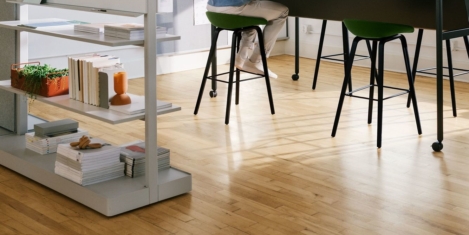
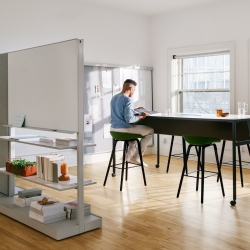

 Just as businesses are starting to find their groove with
Just as businesses are starting to find their groove with 
 Over 40 percent of employers are finding it more difficult to retain and recruit staff, according to
Over 40 percent of employers are finding it more difficult to retain and recruit staff, according to 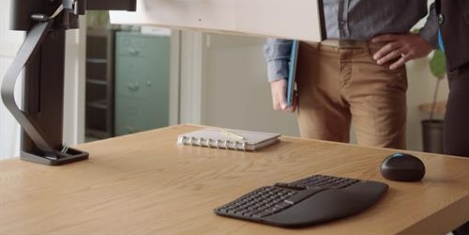
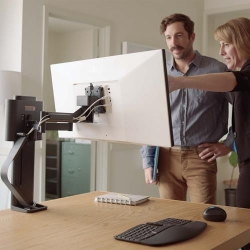 Remote working swiftly evolved from a stopgap lockdown solution into a globally successful workstyle – and it’s set to stay. According to research quoted by
Remote working swiftly evolved from a stopgap lockdown solution into a globally successful workstyle – and it’s set to stay. According to research quoted by
 While the debate about working from home versus working in the office continues, should the real conversation focus on the implications for a typical knowledge worker? ‘Knowledge work’ is a term that dates back over sixty years. It’s said to be first coined by Peter Drucker in his 1958 book The Landmarks of Tomorrow. The business guru went on to talk about knowledge workers in a later book, The Effective Executive, in 1966. He defined them as ‘high-level workers who apply theoretical and analytical knowledge acquired through formal training, to develop products and services’.
While the debate about working from home versus working in the office continues, should the real conversation focus on the implications for a typical knowledge worker? ‘Knowledge work’ is a term that dates back over sixty years. It’s said to be first coined by Peter Drucker in his 1958 book The Landmarks of Tomorrow. The business guru went on to talk about knowledge workers in a later book, The Effective Executive, in 1966. He defined them as ‘high-level workers who apply theoretical and analytical knowledge acquired through formal training, to develop products and services’. 
 The last 18 months have seen unprecedented change. Covid-19 has forced people to re-evaluate every aspect of their lives, including their career. As a result, we’ve seen a surge in workers taking charge of their careers and leaving their jobs as part of the so-called Great Resignation. Recent data from the
The last 18 months have seen unprecedented change. Covid-19 has forced people to re-evaluate every aspect of their lives, including their career. As a result, we’ve seen a surge in workers taking charge of their careers and leaving their jobs as part of the so-called Great Resignation. Recent data from the 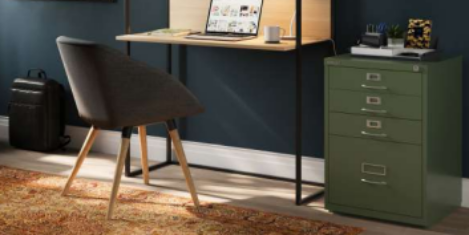




 After nearly two turbulent years, which for many knowledge workers have been dominated by a ground-hog day like existence, people are looking for change. This is only natural as workers around the world are re-evaluating their priorities, reigniting their passions, or simply looking for something new. This has led to a mini-exodus from businesses, which is now being dubbed the ‘
After nearly two turbulent years, which for many knowledge workers have been dominated by a ground-hog day like existence, people are looking for change. This is only natural as workers around the world are re-evaluating their priorities, reigniting their passions, or simply looking for something new. This has led to a mini-exodus from businesses, which is now being dubbed the ‘








January 17, 2022
Is your office worth the journey it takes to get to it?
by Despina Katsikakis • Comment, Flexible working, Property